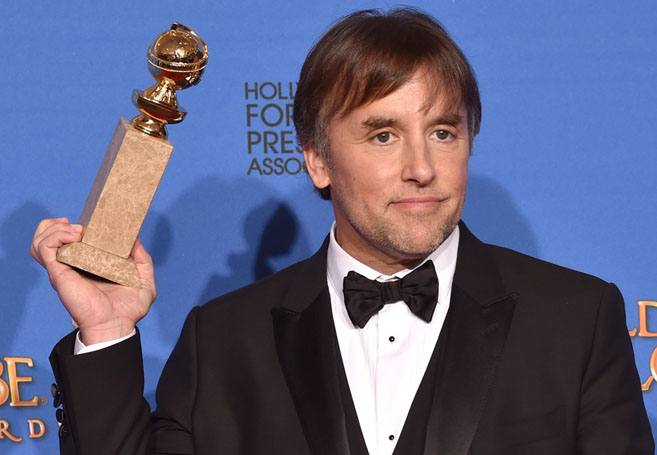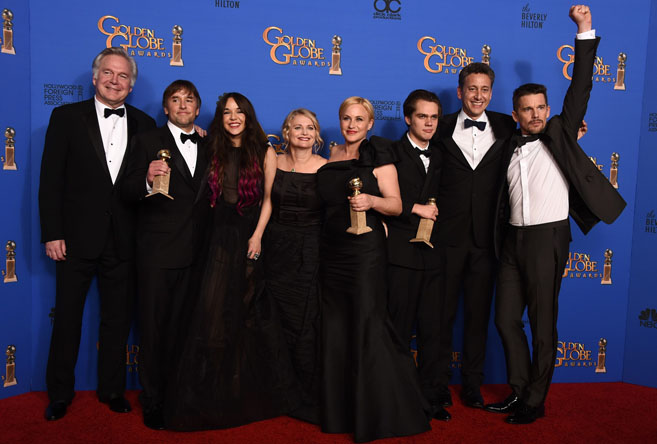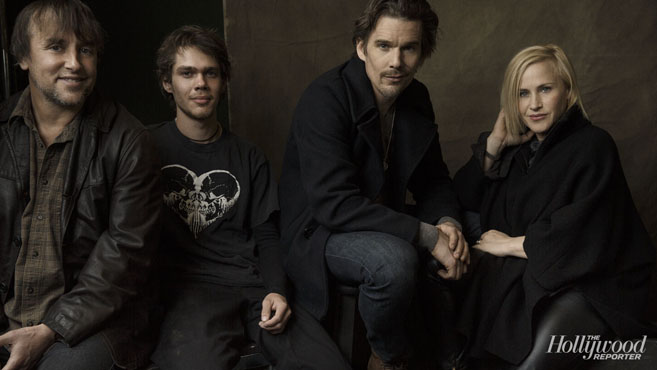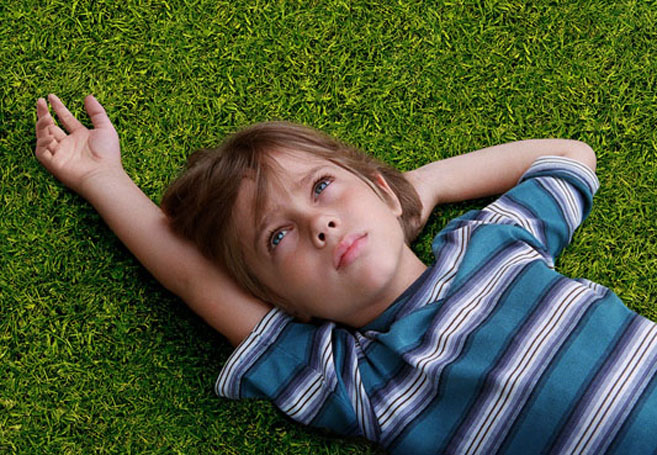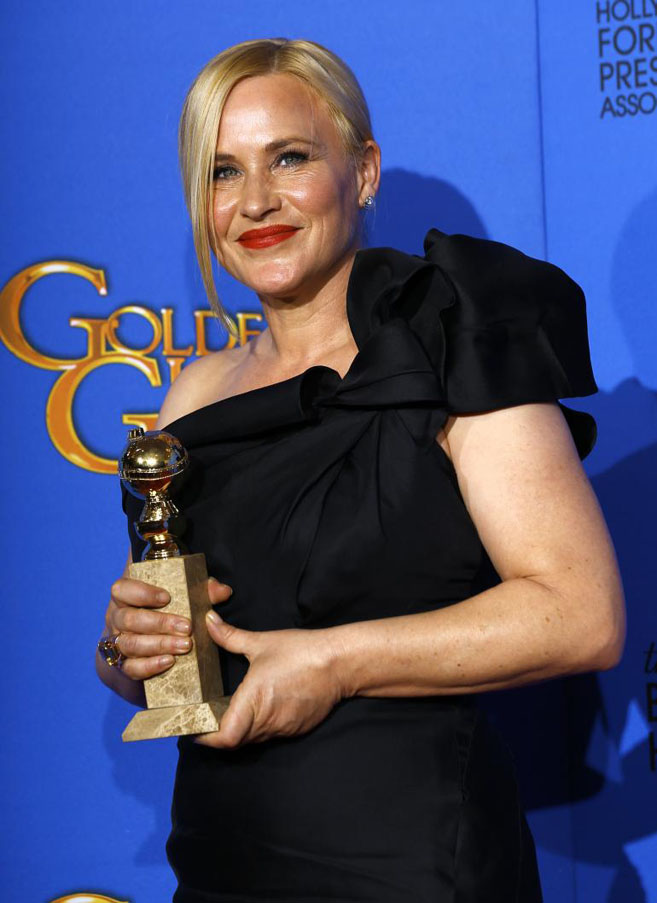FEELguide has been shouting the praises of Boyhood for the past several months, never missing an opportunity to explain why Richard Linklater‘s magnus opus is the most important film of the year. The film has captured the hearts and minds of critics and audiences worldwide, and last night it won three of this year’s biggest Golden Globes: Best Picture, Best Director, and Best Actress for Patricia Arquette. Boyhood‘s golden night now catapults it even closer to the Oscar summit, a journey that will be determined on February 22, 2015.
The extraordinary success of Boyhood is a testament to Linklater’s creative genius, a powerfully simple and elegant concept, remarkable creative discipline and vision, a uniquely loyal cast and crew who believed in the project and worked without contracts, the bold risk-taking dedication of producer and IFC Films President Jonathan Sehring, and a whole lot of patience over the course of the film’s 12 year production. But the fact that Boyhood has resonated so deeply with so many millions of people has everything to do with the film’s powerful message about the fundamental importance of the present moment and how it relates to the human experience.
Jay Michaelson of FORWARD describes the spiritual resonance of Boyhood in a beautiful essay on how the film captures the spirit of time, and how it connects to Jewish mysticism and the Kabbalah: “Much of contemporary (and contemporary Jewish) spirituality, however, dwells in the timeless. ‘In the Now,’ in Eckhart Tolle’s bestselling phrase. ‘Be Here Now,’ in Ram Dass’s. The dance between temporality and the evanescent present is in many ways the dance of our lives, whether we articulate it in this way or not. Richard Linklater’s astonishing new film Boyhood enacts this dance as no work of art has done before. It is an instant masterpiece that took 12 years to make. And it is about the grandest of themes while remaining entirely familiar. In Jewish esoteric traditions, the dynamic interplay between sublime moments and the continuity of the everyday is represented by two of the Sefirot of theosophical kabbalah, Netzach (eternity, endurance) and Hod (splendor). Most Hollywood movies are about Hod: big moments, great sex, flashy cars, transformative experiences. But most of life is about Netzach: coffee in bed the next morning, taking care of the sick kid, amassing meaning not just by chasing the next thrill, but by gradually building a life of relationship and mutual humanity. In studiously avoiding Hod moments — almost none of the typical episodes of a ‘coming of age’ film are present here — Boyhood calls our attention to a different aspect of the poetic. Somewhere, out of all the moments of the ordinary, there amasses an accumulation of the miraculous.” You can read Michaelson’s beautiful essay in full by visiting FORWARD.com.
Boyhood‘s success goes far beyond trophies as well — it marks a watershed moment in Hollywood, proving that audiences are hungry for an evolution in the type of stories we see on the big screen; stories that go beyond plot-driven narratives. The beauty and ingenuity of Boyhood is its inherently human structure. It’s a cinematic masterpiece that has captured the simple truth that 99% of our daily lives contain no “plot” whatsoever — no explosions, no disasters, and no monsters anywhere to be found. Instead, Linklater has collected 12 years’ worth of moments from a boy’s life — a “time sculpture” as he describes it. The resulting 166-minute journey through the life of Mason is an unparalleled exploration of human transformation. In an interview with Charlie Rose, Linklater explains: “I saw the whole film as an exploration of the emergence of self. ‘Who are you?’ It begs the question: are we the same person in first grade as we are when we graduate from high school? How much are we the same? Are we different? Is [our transformation based on biology?] Is it nature vs. nurture? It’s a mystery. No one will ever figure out how we get to who we are and what shapes us.”
Stanley Kubrick once said every one of his films began with a collection of six separate moments and scenes that he clearly envisioned in his imagination, and the remaining creative process was a matter of filling in the blanks. His ultimate goal, he once told Steven Spielberg, was to “change the form of cinematic storytelling” (watch below). In this regard I feel Kubrick would have been the first to champion Boyhood as a groundbreaking achievement in the history of movies, and a pivotal “moment” in the transformation and evolution of Hollywood itself. (Photos courtesy of AFP, Hollywood Reporter, Reuters).
.


